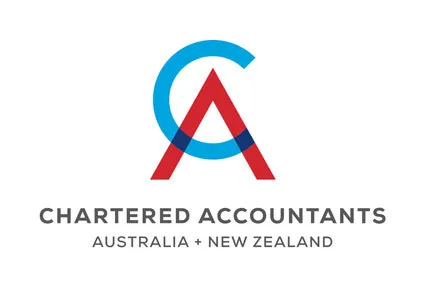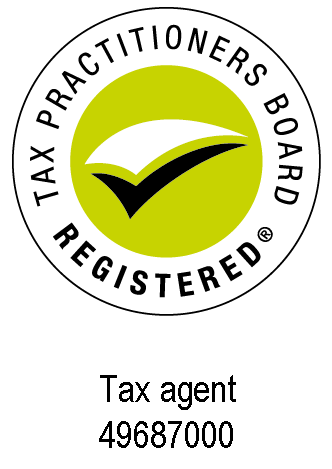NEED MORE INFORMATION
It’s okay to acknowledge that someone else said it first or better. We’ve included links to these other experts to help explain some common issues or answer some common questions.
If these explanations don’t do the job, give us a call and together we’ll clear up any confusion.
FAQ’s
INCOME TAX
Are you a tax resident?
To be considered a tax resident by the ATO, you must come under a number of categories: for example the amount of money you earn, your Australian citizenship status, or the way your visa operates will all determine whether or not you’re a tax resident. However if you were born in Australia, earn your money in Australia, or you’re a permanent naturalised Australian citizen, then you are a tax resident for Australian purposes.
When do I need to lodge a tax return?
You will need to lodge a tax return after the end of the financial year, on June 30.
If you lodge your own return
- you will need to do this by 31 October - and any tax bill will normally be payable by 21 March the following year. You can do this using the ATO's MyTax app, or you can complete a paper return
form.
If you engage a registered tax agent
- like us - to prepare it for you, you may be entitled to a lodgement extension.
Find out more about Loding your return here
What are ‘franking credits?’
Franking credits are refundable tax amounts attached to dividends paid by Australian companies.
When received by Australian shareholders, the tax credit is added to the actual dividend received - known as "grossing up for dividend" and then gross amount is included in the tax return as assessable income. Income tax is then calculated on the total assessable income and a credit is allowed for the "franking credit". Any excess credits can be refunded to the taxpayer.
GST and BAS obligations
What’s a BAS? When do I have to lodge it?
A Business Activity Statement - or BAS - is a document you must lodge with the ATO on a monthly or a quarterly basis if your business is registered to pay GST. It can also include reporting wages information and tax instalments depending on your business registrations.
Must I register for GST?
You must register for GST if your business has GST turnover (gross income excluding GST) of $75,000 or more during a financial year. You must also register for GST if your non-profit organisation has a GST turnover of $150 000 per year or more; you provide transport for passengers as a part of your business (i.e. you run a taxi or limousine company) or if you want to claim fuel tax credits for your business or enterprise.
Should I register for GST?
If you do not have to register for GST, you can choose to opt in. When registered you can claim back the GST in payments made for "creditable purposes".
When registered for GST you will need to report your activity on Business Activity Statements (BASs) on a monthly, quarterly or annual basis. depending on your annual sales level.
Talk to our team today about registering for GST and other GST obligations.
Rental properties
Land tax – am I liable?
Taken from the OSA website “Your principal place of residence is generally exempt from land tax if you meet the eligibility criteria. The principal place of residence exemption does not apply to companies.”
Negative Gearing rules
Taken from the ATO website “A rental property is negatively geared if it is purchased with the assistance of borrowed funds and the net rental income, after deducting other expenses, is less than the interest on the borrowings. The overall taxation result of a negatively geared property is that a net rental loss
arises. In this case, you may be able to claim a deduction for the full amount of rental expenses against your rental and other income (such as salary, wages or business income) when you complete your tax return for the relevant income year. Where the other income is not sufficient to absorb the loss it is carried forward to the next tax year.
If by negatively gearing a rental property, the rental expenses you claim in your tax return would result in a tax refund, you may reduce your rate of withholding to better match your year-end tax liability.”
Find out more about Negative gearing here
Find out more about Negative gearing here
Interest deducibility rules
Taken from the ATO website “You can claim expenses relating to your rental property but only for the period your property was rented or available for rent; for example, advertised for rent. “Find out more about the specifics of the rules and regulations regearing interest deductibility here
XERO Tax PORTAL
What is XERO Tax Portal
?
As part for our Practice Management Solutions we utilise the XERO Tax Portal to provide secure, private access for our clients to their professionally prepared Tax Returns.
The XERO portal is accessible from PC, Smart Devices, with client logging into a secure space which contains their returns and through which they can review and electronically sign those returns. They can also download a secured copy of the return once signe
Check out How XERO E-signin/g works .here
E-signing Requests
Through our Xero Tax System
we send our clients an email that include a link to access their return on the Xero Tax Portal
- and to review and electronically sign their return.
The process for E-Signing is quick and easy - and can be completed on almost any device - including your PC, Tablet or Smartphone.
We believe clients will find this method easier and more convenient to approve their returns.
Optional 2 Step Authentication (2SA)
As part of the login clients also have the opion to setup 2SA - which will require to you install an authenticator application
which generates One Time Passcodes - like MyGov uses - to authenticate your login.
As part of the login clients also have the opion to setup 2SA - which will require to you install an authenticator application
which generates One Time Passcodes - like MyGov uses - to authenticate your login.
This is a requirement of the ATO - as the tax return is a sensitive document so needs a higher level of security.
Client receiving our request on a smart device (phone or tablet) would likely already have the Google Authenticator App installed - and the XERO process will prompt you when you login in add XERO as a service. The process should only take a few minutes.
If they don't have a smart device and are accessing your return from your computer there are alternatives to Google available.
Client receiving our request on a smart device (phone or tablet) would likely already have the Google Authenticator App installed - and the XERO process will prompt you when you login in add XERO as a service. The process should only take a few minutes.
If they don't have a smart device and are accessing your return from your computer there are alternatives to Google available.


